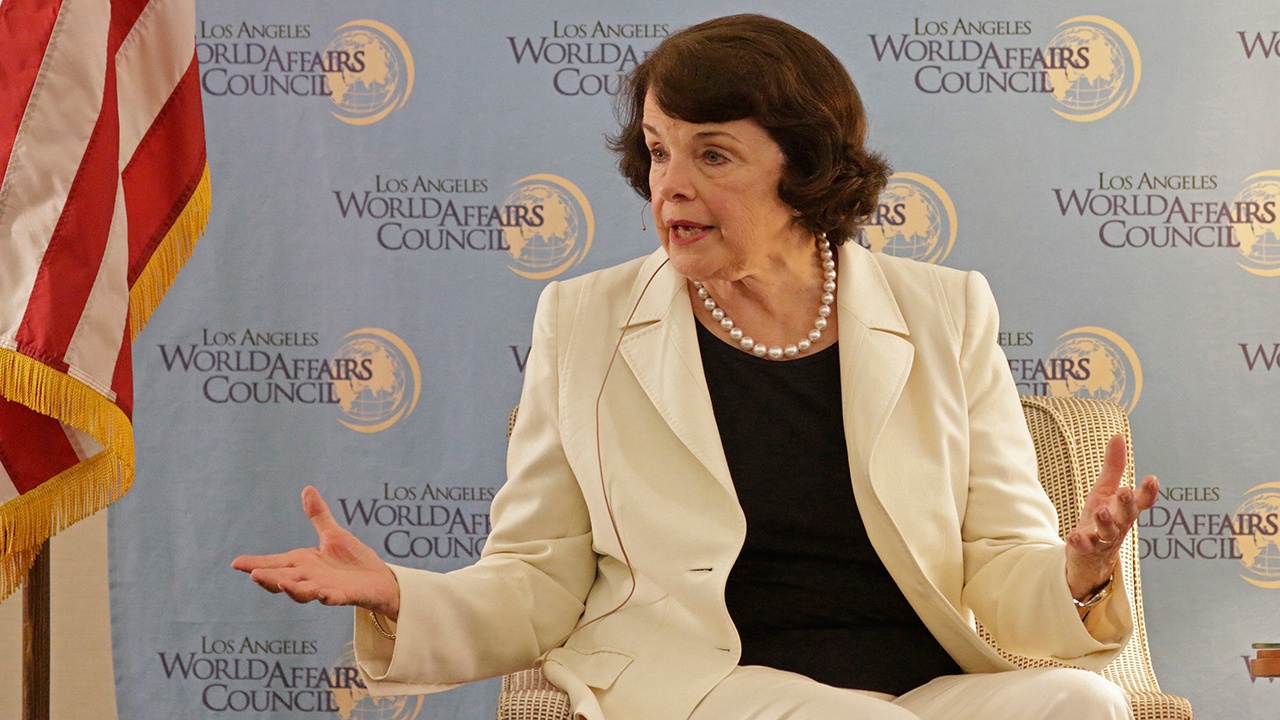WASHINGTON, D.C. — Dianne Feinstein is embarking on a crucial moment in her 24-year Senate career: leading what’s likely to be tense, lengthy and intensely watched scrutiny of President Donald Trump’s Supreme Court nominee Neil Gorsuch.
Trump’s immigration order looms as a crucial flashpoint as the California senator, the top Democrat on the Senate Judiciary Committee, prepares to grill the president’s choice.
Feinstein won’t talk specifically about her plans. But she said Monday that in just the Trump administration’s first week “we’ve seen a flurry of executive orders and presidential declarations like none before — some broad, some seemingly unconstitutional, some unenforceable — and all deeply concerning in their intent and legality.”
Feinstein’s prominent role in cross-examining the nominee follows nationwide airport protests over Trump’s order banning refugees and citizens of seven predominantly Muslim countries from entering the United States.
Legal challenges of those orders are expected to go to the Supreme Court and Trump’s nominee is going to play a vital role. Feinstein, an 83-year-old who had a pacemaker installed three weeks ago, will be the national face of Democrats calling for a judicial check on Trump’s power.
The Judiciary Committee has 11 Republicans and nine Democrats. Hearings are likely to begin later this winter, and if the committee approves the choice, it goes to the full Senate. Sen. Charles Grassley, R-Iowa, chairs the panel. He’s regarded as independent-minded but routinely sides with Republicans on judicial matters.
Feinstein will be leading a group of Democrats on the committee including aggressive questioners such as Al Franken of Minnesota, Dick Durbin of Illinois and Richard Blumenthal of Connecticut.
“There will be questions for the nominee about whether they believe these executive orders are consistent with the rule of law and the Constitution of the United States,” Blumenthal said. “It will be very, very significant in reflecting the nominee’s understanding of the Constitution.”
Liberal groups are cheered by how passionately Feinstein attacked Trump’s executive orders as she voted against his nominee for attorney general, Jeff Sessions, in the Judiciary Committee.
“She has always been an incredibly thoughtful senator, a senator who cares deeply about the issues that come before the Supreme Court,” said Daniel Goldberg, legal director at the Alliance for Justice. “It’s telling the type of leadership she showed on the Jeff Sessions nomination.”
Republicans control 52 of the Senate’s 100 seats. Feinstein has a tough job, as even Trump critics among the Republicans, such as Sen. Lindsey Graham of South Carolina, are inclined to support his nominee.
“I voted for (Democratic nominees) Sotomayor and Kagan because they were qualified. The list of nominees that he’s talked about is a very qualified group of people, and if he chooses from that list then he deserves the same respect given to Sotomayor and Kagan,” Graham said Monday.
The Senate split mostly on partisan lines in the confirmations of Justices Sonia Sotomayor and Elena Kagan, with few Republicans voting to support them.
Senate Majority Leader Mitch McConnell, R-Ky., said it was wrong for Democrats to launch a “partisan crusade” against Trump’s Supreme Court nominee.
“It doesn’t matter if the president is George H.W. Bush or Gerald Ford,” he said on the Senate floor Tuesday. “They’ll warn of impending doom … they’ll claim the end is nigh.”
Feinstein opposed George W. Bush Supreme Court nominees John Roberts Jr. and Samuel Alito but broke with her party to support a controversial Bush federal appellate court nominee, Leslie Southwick. Feinstein is well-prepared for hearings and avoids grandstanding, said Rory Little, a professor at the University of California Hastings College of the Law in San Francisco.
Former San Francisco Chronicle editorial page editor Jerry Roberts, author of the biography “Dianne Feinstein: Never Let Them See You Cry,” said Trump’s executive orders struck at the heart of Feinstein’s fastidious view of what she saw as correct government process.
“That’s the kind of thing that drives her crazy,” he said. “It goes back to Dianne, the girl at the Convent of the Sacred Heart school.”
Roberts said Feinstein’s role as the Democrats’ leader in vetting Trump’s nominee represented one of the most significant moments of her long Senate career.
“It’s real legacy stuff, whether she decides to run again in two years or not,” Roberts said.


